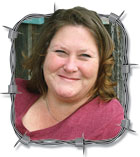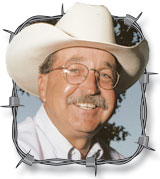One of my wife’s good friends recently bought a luxury home sitting on 30 acres.
Having absolutely no experience or background in agriculture, but knowing that I was a farmer and former agriculture professor, he asked Judy to get me to recommend a good book on “how to farm,” so that he might put the 30 acres to good use and, in his words, “make a reasonable amount of profit.”
Now, it’s true that I’ve read hundreds of agricultural science books in my lifetime. Some were very insightful and well written, while other ones I simply had to shake my head and wonder if the author or authors had ever set foot on a working farm. As my Dad used to say when I would come home from college with a new idea or suggestion for the farm, “Son, if those smart professors had to make a living farming, they’d be a little tighter with their advice.” Translation: You can’t spend a lot of money for a little return.
The truth is there is no book that can teach anyone how to farm. All the scientific books ever written can help to give a person the facts, but the farmer eventually has to weigh all the factors in making the decisions that affect their potential bottom line. This past spring was the perfect illustration.
I and every other farmer in the country, was faced with unprecedented prices for fertilizer. I dug out my old agronomy book and started trying to figure out how I could substitute different nutrients, make use of waste manure, and use alternative sources, and everything and anything possible to reduce the amount of money I would have to spend on chemical fertilizer. I agonized over it for weeks before I dug out my old economics book and realized that there is no way I could spend the amount of money it would take to apply the recommended nutrients. So, for the first time in my adult life, I chose to fertilize only the fields that I planned to cut for hay. The pastures would get none because the opportunity for profit was just not there. I knew this was not the way the book said I should farm, but there is enough of my Dad in me to know that, at least for this year, that’s the way it would have to be.
Here it is the middle of July and I have more grass than I’ve had since I started farming. My hay fields turned off more hay than ever and the cows are really too fat for optimum reproductive efficiency. Plus, I’m still mowing my unfertilized yard at least once per week if not more often. You see, since Jan. 1 of this year, there has only been one seven-day period without a rain and we’ve already received our average annual rainfall for the entire year. Sure enough, I went back to that old agronomy book and there on page 12 of the introductory chapter, it states, “The most important nutrient that plants need for growth is….water.”
Yeah, I got plenty tired of fixing fence along the creek place and replacing water gates at every draw and low place even on the upland ground, but I’m thankful for the amount of water we’ve had and once again realize that farming is a gamble every day of every month of every year. No one could have predicted (the best I remember, the atmospheric scientists were predicting dryer than normal conditions for this part of the Midwest) that things would be this good without using expensive fertilizer. That’s what makes farming so frustrating (and fun) every day.
Now back to my wife’s friend. I suggested he go to the bookstore and purchase a book called, “Cheating the Odds in Vegas,” because he had just as well learn now that it’s all a crap shoot at best.
Jerry Crownover farms in Lawrence County. He is a former professor of Agriculture Education at Missouri State University, and is an author and professional speaker. To contact Jerry about his books, or to arrange speaking engagements, go to www.ozarksfn.com and click on 'Contact Us."






